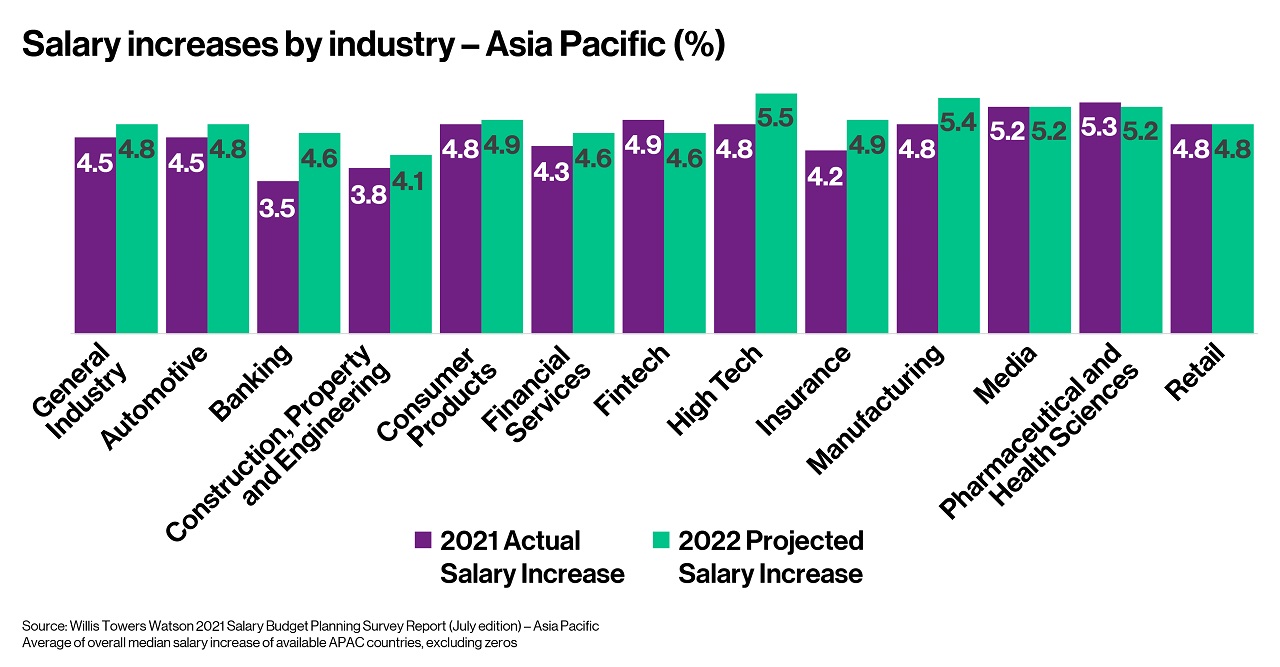APAC salaries set to rise in 2022: Willis Towers Watson report

Salaries in the Asia Pacific are likely to rise next year, according to the latest figures from Willis Towers Watson, and the increase will be the highest among regions globally.
WTW's latest Salary Budget Planning Report, based on a survey conducted between April and June 2021, found that APAC companies are projecting average salary increases of 5.3% for executives, management and professional employees, and support staff in 2021. The number is particularly high for emerging markets, with companies in India projecting 8.8% increases and companies in Vietnam projecting 7.4% increases.
The region's more developed markets have lower projected salary increases for 2022, with Japan right at the bottom at 2.5%. Australia, Taiwan, Hong Kong, and Singapore are also noticeably below the average.

In comparison, salaries in the rest of the world are expected to grow much more slowly, or in the case of North America and Western Europe, even stay flat.
Edward Hsu, Business Leader, Rewards Data and Software, Asia Pacific, Willis Towers Watson, suggests several reasons for the pay increases. Firstly, APAC is expected to see better trade growth than much of the rest of the world, which directly affects manufacturing output and foreign direct investment. Tech demand driven by remote work contributes significantly to this – as already seen in the demand for tech talent, which has driven up salaries in the sector. High tech and manufacturing in particular are seeing industry-specific salary increases on par with the regional average.

Secondly, companies are reversing pay freezes implemented in 2020, at the height of the pandemic. The percentage of APAC companies that have cancelled salary reviews dropped from 30% last year, to 13% this year, and is projected to fall to 2.5% next year.
“Many businesses awarding high salary increases are also acknowledging and rewarding their employees who have demonstrated resilience throughout the pandemic,” Hsu noted.
However, salary inflation may also be problematic for companies, said Vidisha Mehta, Head of Talent and Rewards, Singapore, Willis Towers Watson, and this is driving changes to many organisations' compensation strategies.
“Companies are between a rock and a hard place when it comes to compensation planning. On the one hand, employers need to continue effectively managing fixed costs as they rebound from the pandemic. On the other hand, companies recognise they need to boost compensation, especially in sectors where there may be a manpower crunch. This situation has driven organisations to explore alternative options to fixed pay increases, including sign-on, referral and retention bonuses, functional and skill premiums, mid-year adjustments or pay increases,” Mehta noted.
















